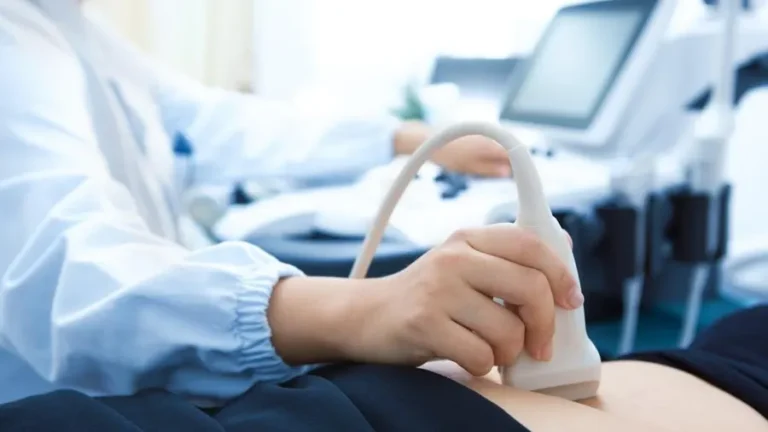Understanding the Polygraph Lie Detector Test Cost: What You Need to Know
Introduction: The Growing Interest in Polygraph Testing
Polygraph lie detector tests have long been associated with law enforcement, courtroom dramas, and criminal investigations, but in reality, their use has expanded far beyond just solving crimes. Today, polygraph examinations are used in pre-employment screenings, security clearances, infidelity investigations, and even personal matters where truth verification is important. With this growing interest, a natural question arises: how much does a polygraph lie detector test actually cost? While many people assume the cost is fixed or standardized, the reality is far more nuanced. The price of a polygraph test can vary widely depending on a range of factors such as location, the examiner’s credentials, the type of test, and even the urgency of the appointment. This article delves deep into the various aspects that influence Affordable lie detector test and offers insight into what consumers can expect when seeking such services.
What is a Polygraph Test and How Does it Work?
Before diving into the cost, it’s important to understand what a polygraph test is and how it operates. A polygraph, commonly referred to as a lie detector, measures and records several physiological indicators such as blood pressure, pulse, respiration, and skin conductivity while the subject answers a series of questions. The theory is that deceptive answers will produce physiological responses that can be distinguished from those associated with non-deceptive answers.
The test usually begins with a pre-test interview where the examiner explains the process and formulates questions. This is followed by the actual test phase, during which data is collected while the subject answers the questions. Finally, there’s a post-test phase where the examiner analyzes the data and discusses the results with the subject. While the polygraph is a popular tool for detecting deception, it’s important to note that it is not foolproof and has its critics, especially in terms of admissibility in courts.
Average Cost of a Polygraph Lie Detector Test
The cost of a polygraph test in the United States typically ranges from $200 to $2,000 or more, depending on a variety of elements. On average, most private polygraph tests cost between $300 and $800. However, specialized tests—particularly those used in government investigations or for legal purposes—can go much higher. For example, a highly credentialed examiner working on a national security clearance case may charge upwards of $1,500 to $2,000.
For more common situations such as personal matters (e.g., relationship issues or pre-employment screening), you can expect to pay closer to the lower end of that spectrum. It’s crucial to understand that the cost does not necessarily equate to the accuracy of the test, but rather reflects the examiner’s experience, the nature of the test, and the operational costs involved.
READ MORE : Understanding the Silent Bone Disease
Factors That Influence the Cost of a Polygraph Test
Several factors contribute to the wide range of prices seen in polygraph testing:
1. Examiner’s Qualifications and Experience:
An examiner certified by reputable organizations such as the American Polygraph Association (APA) or who has significant law enforcement or federal agency experience is likely to charge more for their services. This is due to their expertise and higher demand for their skills.
2. Location:
Polygraph test costs can vary significantly based on geographic location. Tests conducted in large metropolitan areas or states with a high cost of living (like California or New York) tend to be more expensive than those in rural or less populous areas.
3. Type of Test and Purpose:
The complexity and purpose of the test also influence the price. A simple yes-or-no infidelity test may cost less than a more detailed pre-employment screening or legal examination that requires detailed documentation and a comprehensive report.
4. Duration of the Test:
Most polygraph examinations last between 1.5 to 3 hours, but some can take longer. A longer session may require a higher fee to cover the examiner’s time and resources.
5. Urgency and Scheduling:
If you need a polygraph test on short notice, expect to pay a premium. Same-day or weekend appointments often carry additional charges.
6. Additional Services:
Some providers offer add-on services such as a written report, video recording of the session, or expert testimony in court. These extras can significantly increase the final bill.
Breakdown of Common Polygraph Test Scenarios and Their Costs
To give you a better idea, here’s a breakdown of what you might expect to pay in various common scenarios:
- Infidelity or Relationship Testing: $300 to $600
Often sought by couples trying to resolve issues of trust. These tests are typically straightforward and can be completed in a few hours. - Pre-employment Screening: $400 to $800
Frequently used by law enforcement agencies, government contractors, and high-security employers to verify candidate integrity. - Criminal Defense or Legal Purposes: $800 to $2,000
When polygraph tests are used in criminal or civil cases, the examination must meet stringent legal standards, which requires a highly experienced examiner. - Government or Federal Security Clearance Tests: $1,000 to $2,000+
These are among the most expensive polygraph tests due to the sensitive nature of the material and the need for exceptional precision and credibility.
Is It Worth the Cost?
The value of a polygraph test is subjective and often depends on the stakes involved. For someone trying to prove their innocence or regain trust in a relationship, the cost may be a small price to pay for peace of mind. In employment and legal contexts, a polygraph result may not always be admissible in court, but it can still play a significant role in influencing decisions or demonstrating good faith.
However, it’s essential to remember that polygraph tests are not 100% accurate. Most experts agree that when administered properly by a qualified examiner, a polygraph can be between 80% and 90% accurate, though there’s always a margin for error. False positives and false negatives do occur, which is why many courts and employers use polygraph results as just one part of a broader assessment.
How to Choose a Qualified Examiner
Given the financial and emotional investment involved, choosing the right examiner is critical. Here are some tips:
- Check Certifications: Look for professionals certified by reputable organizations like the APA or the National Polygraph Association.
- Experience Matters: Ask how many tests the examiner has conducted and whether they have experience in your particular area of concern.
- Request Sample Reports: A reputable examiner should be willing to show you the type of report you’ll receive.
- Read Reviews and Testimonials: Online reviews can offer insight into other clients’ experiences.
- Avoid Bargain Deals: Low-cost services might cut corners, use outdated equipment, or involve inexperienced examiners.
Alternatives to Polygraph Testing
In some cases, alternative methods may be more appropriate or less expensive. These include:
- Voice Stress Analysis (VSA): Measures micro-tremors in the voice but is generally considered less reliable than polygraph tests.
- Behavioral Interviews: Skilled interviewers may detect deception through body language and inconsistencies in responses.
- Psychological Assessments: Often used in employment or mental health evaluations, though not directly designed for lie detection.
While these methods are useful in specific contexts, none have consistently outperformed the polygraph in terms of physiological-based lie detection.
Conclusion: Making an Informed Decision About Polygraph Test Costs
Polygraph lie detector tests can serve a variety of purposes, from resolving personal disputes to aiding legal defenses and verifying employee integrity. While the cost of these tests can vary widely—from as little as $200 to more than $2,000—understanding the factors that influence pricing can help you make an informed decision. Whether you’re considering a test for personal, professional, or legal reasons, it’s essential to weigh the potential benefits against the financial cost, keeping in mind the test’s limitations and controversies.
Choosing a certified and experienced examiner is crucial to ensuring that you receive a test that is both reliable and ethically conducted. In the end, while a polygraph test may not provide absolute truth, it can offer valuable insight and clarity in situations clouded by doubt, making it a potentially worthwhile investment for those seeking answers.






